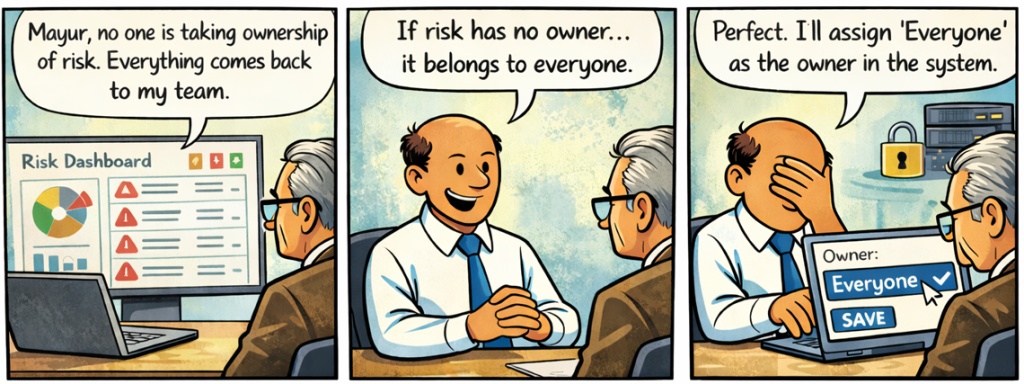
Three (3) Pillars of Information Security Frameworks
ISO 27001 | CMMC | NIST 800-171 | NIST 800-53 | ISO 9001
(Type “Blind Spots in GRC” if you want me to accept your connection!)

ISO 27001 | CMMC | NIST 800-171 | NIST 800-53 | ISO 9001
(Type “Blind Spots in GRC” if you want me to accept your connection!)